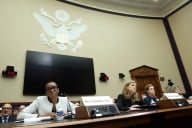You have /5 articles left.
Sign up for a free account or log in.
College visits and campus tours taken by prospective students are not known for producing news or drama. It is true that a memorable Sopranos episode was built around a father-daughter trip to visit colleges in Maine, and while there is no evidence, it is possible that Michael Jackson’s moonwalk could have been inspired by the backward walk perfected by college tour guides. But most campus tours are neither groundbreaking nor news making.
Until now, that is. On April 30 two brothers from New Mexico were stopped and questioned by campus police at Colorado State University while they were part of an admissions tour, earning coverage from news outlets ranging from this one to The New York Times.
Campus safety and security have become important issues for prospective students and their families, and campus blue-light security systems are often highlighted on campus tours. So when two campus police officers were waiting as the tour descended a set of stairs inside a campus building, it might at first glance have appeared to be a scripted part of the “user experience.”
It wasn’t, of course. The officers were there responding to a 911 call placed by a woman concerned about the two young Native American men who had suddenly joined the tour. The brothers had joined up with the tour in progress after arriving in Fort Collins late after a seven-hour drive from their home.
According to the 911 call, the men made the woman uncomfortable because of the “weird symbolism” on their clothing and their refusal to answer questions about who they were and what they hoped to study at CSU. So she called campus police to report the suspicious characters.
In today’s world the campus police had no option but to respond to the call. I have watched body-cam footage of the incident, and from what I can see both the brothers and the campus police were polite and respectful. The police had the brothers empty their pockets and asked for identification and then let them go. Unfortunately the tour had continued on, and it was too late for the brothers to rejoin. They got in the car and drove seven hours back to New Mexico.
Folks at Colorado State have been appropriately horrified by the incident, in welcome contrast to the response by officials in the University of Texas System to its Tyler campus offering then withdrawing scholarships to students from Nepal. On Friday the University of Texas System apologized but claimed inability to rectify that serious ethical lapse.
Colorado State president Tony Frank issued a statement describing the treatment afforded the two brothers as deeply unsettling and calling on the university community to engage in self-examination as to how this kind of incident can be avoided in the future. Colorado State is attempting to reach the two young men and have them come back to give the university a second chance.
Colorado State may be the focal point here, but the incident should be cause for inward reflection for all of us in the profession -- and for all of us who live in America. And unfortunately it’s not an isolated incident in our society. In the two weeks since the situation at Colorado State, there have been several other incidents where someone, usually white, called the police because a person of color made them feel uncomfortable.
A graduate student at Yale University called campus police after finding another graduate student sleeping in a dorm common room. In California four artists, one of them the granddaughter of reggae singer Bob Marley, were stopped by police after a neighbor thought they were burglarizing the home they had rented through Airbnb. And also in California a woman called police over a family having a cookout at a local park.
The Colorado State situation feels worse because it happened on a college campus and to prospective college students. If there is any part of American society that should be welcoming and inclusive to individuals from all kinds of backgrounds and experiences, it is higher education.
The college admission profession needs to be at the forefront of helping individuals better themselves and their economic condition through education, and also at the forefront of helping the nation overcome divisions and prejudices and prepare for the demographic changes taking place in the 21st century.
How do we do that? We need to make sure that the college admissions process is welcoming and easy to understand for students from all backgrounds. We need to lessen the impact of privilege in the admissions process where possible, and we need to make sure that we find new, open-source ways of educating students and families who don’t live in a college-going culture and don’t have access to good counseling about college admission and the college experience.
We also need to give renewed attention to the human resources aspect of our profession. College admission counseling is a people business, in two different aspects. We are about helping young people make decisions about their futures, and there is no more noble calling. But we are also a people business in that the effectiveness of our efforts is dependent on the quality of the people we attract to the profession and then retain.
A huge piece of that is making sure that our profession reflects the diversity of the students we work with. At last fall’s NACAC conference, opening speaker Shaun Harper challenged our profession to make not only our campuses more inclusive, but also our profession. Whether we liked the tone of his criticism or not, he was right. Our effectiveness as a profession is tied to attracting and keeping a diverse group of talented, caring professionals in admissions offices, in the school counseling community and in the community-based organizations that serve an increasing number of students.
We also need to have more empathy for what our fellow citizens experience on a daily basis. I am sickened to think that two Native American brothers visiting a college campus would be stopped by campus police because someone saw them as a threat, but those of us who don’t have to worry about being perceived as suspicious every time we go out in public should understand how degrading and humiliating that can be and develop empathy and solidarity with our fellow citizens who live that every day.
Colorado State was news because it doesn’t happen often. Let’s learn from it, create a college admissions culture that is even more welcoming and inclusive, and prevent a repeat.








